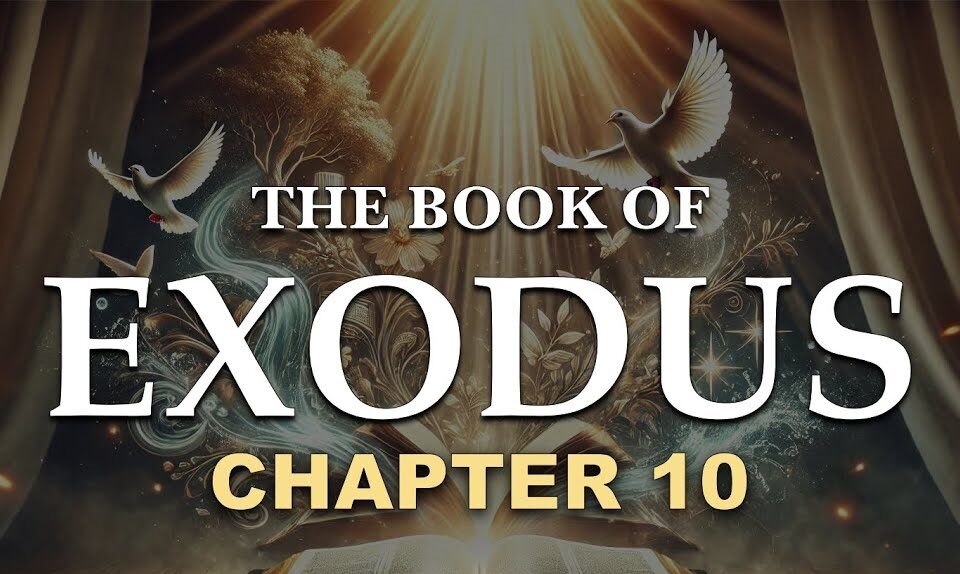Divine Retreat Centre UK – Official Website

How Important is Silence for our Souls?
April 19, 2021
How to face persecutions? – Fr Antony Parankimalil
April 19, 2021Listen to this article:
Psalm 68:19 – The Lord deserves praise! Day after day he carries our burden, the God who delivers us.
Life has so much to offer and accomplish, that from an early age we are encouraged, trained and peer influenced to become someone, in this competitive world. Gifted with talents and armed with extensive years of training, we roll up our sleeves, with the aim to take off in action – as a worker, or even a trendy homemaker. While we are ready to laboriously sow the seeds, irrigate and patiently wait to reap the harvest, what nerves us, is to find the uninvited weeds that happily spring forth. The weeds of trouble or problems; that uninvited guest that audaciously demands a doubling of our efforts!
Alas, this is when many people tend to shirk away in fear and dread!
The challenge in viewing problems:
The confusion arises in firstly believing that problems are an absolute unnecessary burden, some of which can be almost as double a load/addition, as our own eight hour job – so is it not better to bypass problems than unnecessarily be bogged down with it?
Or, shake the heavens complaining about problems, when we find no way to accept its commanding presence (especially if it is caused by others whom we do not love or a government body).
“Unnecessary”, “big burden”, “mood drainer” and “no benefit” are like flashing words that light up, each time we see an oncoming problem. As a result we feel so disheartened and the fleeting desire to escape from this added load, is like the elephant who flees from the ant, it has just seen.
Many are attuned (or unconscientiously mirror a practice from our predecessors), to look at problems, with such disgust, that though we have not even approached it, we are consumed with frustration and a sense of defeat.
Alas, the common seemingly “healthy” automated response to it is – Prevention is better than cure, steer far away from problems.
Seemingly pointless:
Now while we are remunerated for clearing our work plate and this (though difficult) is accepted, we see no remuneration (even in kind), hence there is no point in the “additional burden” of problems. It is unfair and undeserving and the thought creeps up, “Why did I get hit with this headache?”
The way we view it is what makes all the difference and often, we have not been schooled to tackle the internal emotions we face with problems, thus we revert to the age old practice of dodging it.
A very absurd example of a tiny problem (yet it holds true for many), is something like this:
You need to clear the dining table after your guests have left. You are very tired, so the “problem” of making several trips to the kitchen, to put by the dishes, has just cropped up.
It has already caused your droopy eyes to be forced open wide and at all cost you want to AVOID several trips, so you spend additional time wondering how to solve it.
Longing to sleep, yet at this hour calculations are done i.e. it takes about 20 minutes to make four needed trips to the kitchen, as opposed to just 10 minutes of two heavy duty trips.
Now at 11pm all one has to do, is work on their balancing skills. So a greater load is carried, carefully and extremely slow (which adds a delay of five more minutes) and at the end of the second trip, a couple of plates crash to the ground. Flustered, you spend 10 extra minutes to clean up and thereafter, the irritated insomniac emerges from inside of you!
Healthy Practice – Bracing problems, by first countering negative emotions:
Just as WE EXPECT that a work plate will start to build up with tasks and needs constant clearing, a conscientious worker has the mindset of working at clearing up his list and ticking if off as he goes. So too, problems are common occurrences of regular laundry, that need our attendance. Instead of one reacting, retracting and running, jot these down on the “to be worked on” list. Jotting it down, tends to ease the mind into thinking that the burden (but moreover the accompanying emotions) are transferred to paper (which obviously does not react). As the mind eases, it produces more ideas, to jot against the written outlined problem and this start to feel victorious.
Deal with it using professional gloves as it immediately helps to put things into perspective and eases things.
Surrender the plate/to-do list of problems to the Holy Spirit, petitioning Him to really show you faster and better ways to tackle these. Yet the initial way starts by not hitting the breaks to a screeching halt and U-turning away in fear, from the problem!
If the Goliath problem did not exist, there would be no “legendary” ruler, King David. Though he was God’s choice, he was not his brother’s or the people’s choice, until Goliath emerged. While the problem of Goliath stood taller than the trembling Israelites, young David (not even a man), took him on and in the end, the Israelites rejoiced, as David proved to have a greater inner strength (of the Spirit), that made him stand taller than Goliath!
For example: It is said, that especially for complicated surgeries, a well renowned surgeon should never operate on a very dear family member, due to the distraction of emotions, that takes his (otherwise calm) mind, off his precision, work while at surgery.
While it may not at all be in our set of “goals” to achieve (for which we expect and accept some hardship) and at times it may even interfere in achieving our dream goal, many problems are part of God’s planned list of “goals” for the great achievements He desires for you.
God uses “parables consisting of our own life’s problems” to educate us and sharpen us, not only in spiritual but material ways. It is actually a bizarre, but real sign, that we are on His priority list, He loves us and is constantly thinking of us!
Psalm 139: 17 – How precious also are Your thoughts to me, O God! How vast is the sum of them!
Not giving problems their due attention
- Running away from a problem works only momentarily or at times. If we do not deal with it squarely, we will resort to sinful ways in dodging it, eventually leading our souls into a miserable state and bringing into existence, new sinful habits that are hard to remove. Sometimes avoiding problems or dodging it, can also lead one to fall into a life of repeated mortal sin.
Example: The prodigal son had a serious problem with his own father – he disliked and did not understand him; felt him to be a boring, goody two-shoes. He never persisted in trying to bridge the gap or open up to his dad or a wise person. His prejudice against his father, made him leave home, take money (which should have been his, only upon his father’s death), spent it on a life of continuous sin, bear terrible consequences for a long time and finally swallow his pride and come crawling back to his father.
All this because of the problem, of constantly growing up disregarding his dad and thereafter, not trusting him enough to have a heart to heart conversation with him. He landed into greater problems, but surprisingly, all the gruesome problems of hardship vanished, once he tackled his initial problem which was to realize, respect and honour the father, whom he had never valued and then finally turn back home!
- In the stage play of our life, often really troubling problems, directly point to a sin in our nature, which we may not have even reflected, as a sin. The more the problem shakes us, the more God is warning us to firstly scrutinize our actions, realize the wrong we are doing and depart from it.
For example: Many times in the gospel, we come across people who had a severe problem of sickness. However, Jesus had to ask them to let go of their sinful habits, forgive their sin and only then the problem of their sickness was healed.
- If we are willing to honestly deal with our problems, it will lead a soul who chooses God to:
a) find the nearness of God (in a tangible way) and rejoice – holding onto Him as the best treasure
b) gain more wisdom and experience, for tougher journeys
c) help us retain what is really important and filter out the empty things we cherished (that was hurting us)
d) gain more treasures
e) see problems as pain nerves pointing to areas that need urgent rectification, so as to avoid bigger setbacks
f) have revised realistic goals and healthy expectations
g) make us calmer and stronger and help us comfort others when the boat rocks (thus giving witness to Christ)
h) make you more organized and sharper at perceiving the early onset of new challenges
i) gives you an elevated level of freedom.
Many problems are not problems per se, but they point to the real problems we had i.e. lacking certain strengths, skills, good relations, strong ties/faith in God, wrong priorities, health issues/or unhealthy habits, etc.
Fear greatly procrastinates dealing with problems
Problems help point out our innate fear, which is the biggest problem. Each time we see a problem, we wish to exit mainly because of fear, which is the root cause of many sins.
God, who prefers to teach us in real life parables (where we are the lead actor in the parable), shows us through these, the bigger problem of fear that we need to tackle. He beckons us to bring it to Him and constantly intercede (even if it has to be a lifelong intercession – just as the Our Father, is a daily, life-long prayer).
For greater than our problem is our fear – each time we see problems shaking us, it is fear at its root that is shaking us or making us angry, and we need to realize its persistent existence. Thankfully it GETS WEAKER, when we constantly and ardently offer this supplication to our fearless God.
Matthew 26:37- And taking with him Peter and the two sons of Zebedee, he began to be sorrowful and troubled.
Matthew 26:39 And he went a little further, and fell on his face, and prayed, saying, O my Father, if it be possible, let this cup pass from me: nevertheless not as I will, but as thou wilt.
It was at the end of His life, when Jesus Himself was plunged into anguish and remained troubled (anticipating His sufferings), hence He cried out this prayer to His Father.
When Jesus wanted to raise Lazarus from the dead, all He did was stand up and thank His Father once and Lazarus came alive.
Yet this is the only time in the Gospel, where Jesus falls to the ground instead, repeats a petition three times to His Father and that too for Himself – while the Father can see His great anguish, such that He is sweating blood! If He worked so hard for salvation, we too have no easy way (the narrow gate) to get there.
It shows us how important this particular petition was. An overwhelmed Jesus, needed to make tremendous efforts, to get help from His Father, to perfectly transition to the Father’s will and what He was really praying for, was only the strength (courage and fearlessness) to face His end.
Ironically when such a “backbreaking” prayer that was said, it was not really for Himself, but only to do the Father’s will, for the benefit of all of us!
Here Jesus teaches us, that we too need to make many efforts all our life, to repeat this prayer of being endowed with courage and fearlessness, because it was what REALLY helped Jesus, achieve His life’s GREATEST VICTORY, when He took up the toughest task of the Lamb’s sacrifice!
However, the Father had an astonishing way of responding…He sent an angel to strengthen Jesus!
How humbling, Jesus the Lord, by decree of His Father, needed to receive strength from His own creature! His Father did not directly empower Him, such that He switched to superman mode and moved forward like a valiant hero. No, Jesus submitted to all kinds of problems, pleading with a sweat of blood (that too) for strength and thereafter having to accept getting it from His created angel, but He was blessed for doing this.
Soon after, when the soldiers came to arrest Him, He was so prepared, that He calmly and confidently stepped forth, bravely and outspokenly identified Himself as the only one they were looking for and COMMANDED that they let the others (disciples) go! When His arrestors first heard Him say, “I am He” – it was they, who fell to the ground.
Fear was so intense that night for all, that one disciple was willing to run off naked – leaving behind his garment with those who tried to seize him.
For Jesus however, distress and being troubled went into remission, while being replaced by perfect courage. Thereafter too, His answers to the chief priest and Pilate were so bold, that it was they (Pilate) who got frightened.
If Jesus avoided the problem of His crucifixion, we would have been eternally crucified. His Love made Him dead to fear, and hungry to take on the cross, until He successfully breathed: It is finished!
If the little baby did not suffer problem of a little pain, from every fall while trying to walk, he would not endeavour to perfect his steps and enjoy the full use and power of his legs.
If we did not have the “problem” of years of studies and not only training ourselves to accept it, but embrace and ace it, we would not have the ability to work and excel in a decent paying desk job, for a lifelong sustenance, for us and our dependents.
Though it is easy to explain, it is harder to put into practice, but in short – it helps to start by praying to combat fear, to face these problems. For (as the saying goes), ‘Well begun, is half done’.
John 16:33: “I have told you these things, so that in me you may have peace. In this world you will have trouble. But take heart! I have overcome the world.”




